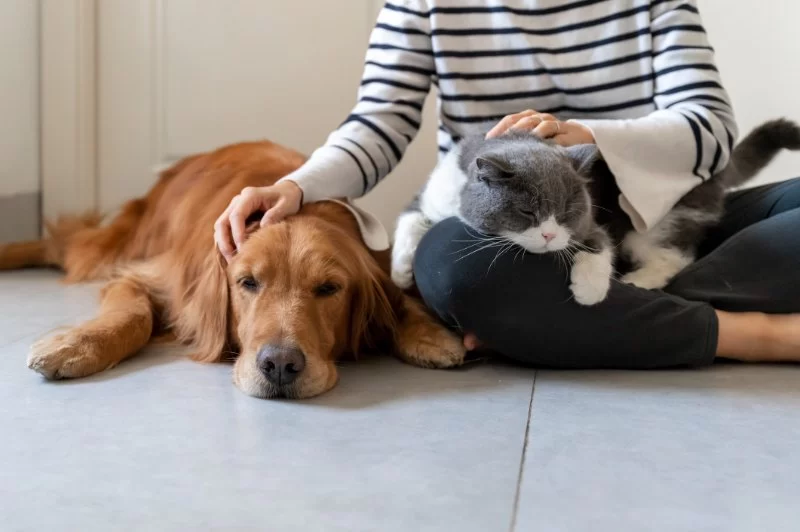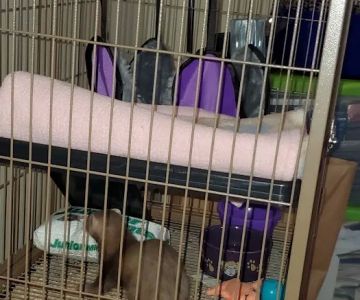Understanding Why Routine Matters for Pets
Pets thrive on predictability. Just as humans feel more comfortable with familiar schedules, dogs and cats rely on steady routines for their sense of security. When routines shift—whether due to a new job schedule, a move, or a family change—pets can become anxious. Understanding the root of their stress is the first step in helping them adjust.
Signs of Anxiety in Pets
Common signs include pacing, excessive barking or meowing, destructive chewing, or even withdrawal. A dog experiencing separation anxiety may scratch doors when left alone, while a cat might hide or refuse food. Recognizing these early signs ensures quicker support for your companion.
1. Gradual Adjustments Make a Difference
One of the best ways to help pets adapt to new routines is by introducing changes gradually. For example, if you know your work hours are shifting, begin adjusting your pet’s feeding and walking times in small increments before the change occurs.
Case Example: A Dog Facing a New Work Schedule
When Emma started a new job with earlier hours, she gradually moved her Labrador’s morning walk time earlier by 15 minutes each day. Within two weeks, the dog was happily adjusted to the new routine without stress behaviors.
2. Creating Safe Spaces for Comfort
A designated safe space provides security during uncertain times. This could be a cozy crate for dogs or a quiet corner with blankets for cats. Adding familiar scents—like a favorite toy or worn T-shirt—helps pets feel grounded when changes are happening around them.
Why Familiarity Matters
Pets use scent and environment as emotional anchors. A stable space ensures they always have a retreat, even if the household schedule feels unpredictable.
3. Exercise and Mental Stimulation as Stress Relief
Activity plays a huge role in reducing anxiety. Dogs benefit from daily walks, fetch sessions, or puzzle feeders that keep their minds engaged. Cats may enjoy climbing trees, interactive toys, or window perches. These activities channel nervous energy into healthy outlets.
Real-Life Story: Overcoming Separation Anxiety
Mark’s Border Collie struggled with anxiety when left alone. By adding morning play sessions and interactive feeders, Mark noticed a decrease in destructive behaviors. Structured activity created positive anticipation instead of fear.
4. The Role of Consistent Cues and Communication
Pets rely on signals. Using consistent cues—such as saying “be right back” before leaving—can reassure them that absences are temporary. Predictable rituals like post-work playtime or evening grooming routines help stabilize their emotions.
Building Trust Through Ritual
When owners follow through with reliable patterns, pets build confidence. Even small gestures, like always greeting them calmly, reinforce stability despite external changes.
5. Natural Calming Aids and Professional Guidance
Some pets may benefit from calming products like pheromone diffusers, weighted blankets, or specially formulated treats. However, chronic anxiety may require professional help. Veterinary experts can provide tailored strategies or recommend behavior specialists.
Expert Insights from Hidden Brook Veterinary
At Hidden Brook Veterinary, specialists often emphasize a combined approach: routine consistency, enrichment, and professional guidance when needed. Their holistic strategies help pets not only cope but thrive during transitions.
6. When to Seek Professional Help
If anxiety escalates to self-harm, refusal to eat, or aggression, it’s time to consult a veterinarian. These behaviors indicate more than temporary stress—they may reflect underlying health or behavioral issues.
Building a Support Plan
Working with veterinary professionals ensures your pet receives a tailored plan. Hidden Brook Veterinary offers personalized care recommendations, helping owners feel supported in providing the best environment for their companions.
Encouraging a Healthy Bond Through Change
Change is inevitable, but anxiety doesn’t have to dominate your pet’s life. By making small adjustments, providing safe spaces, encouraging activity, and leaning on expert guidance, you help pets find stability in the middle of change. Every effort strengthens the bond between you and your pet, ensuring they feel safe, loved, and understood.
Invitation to Pet Owners
For pet owners navigating major lifestyle changes, Hidden Brook Veterinary provides trusted services and advice to guide the transition. With the right strategies and support, pets can adapt smoothly, building resilience for the future.












